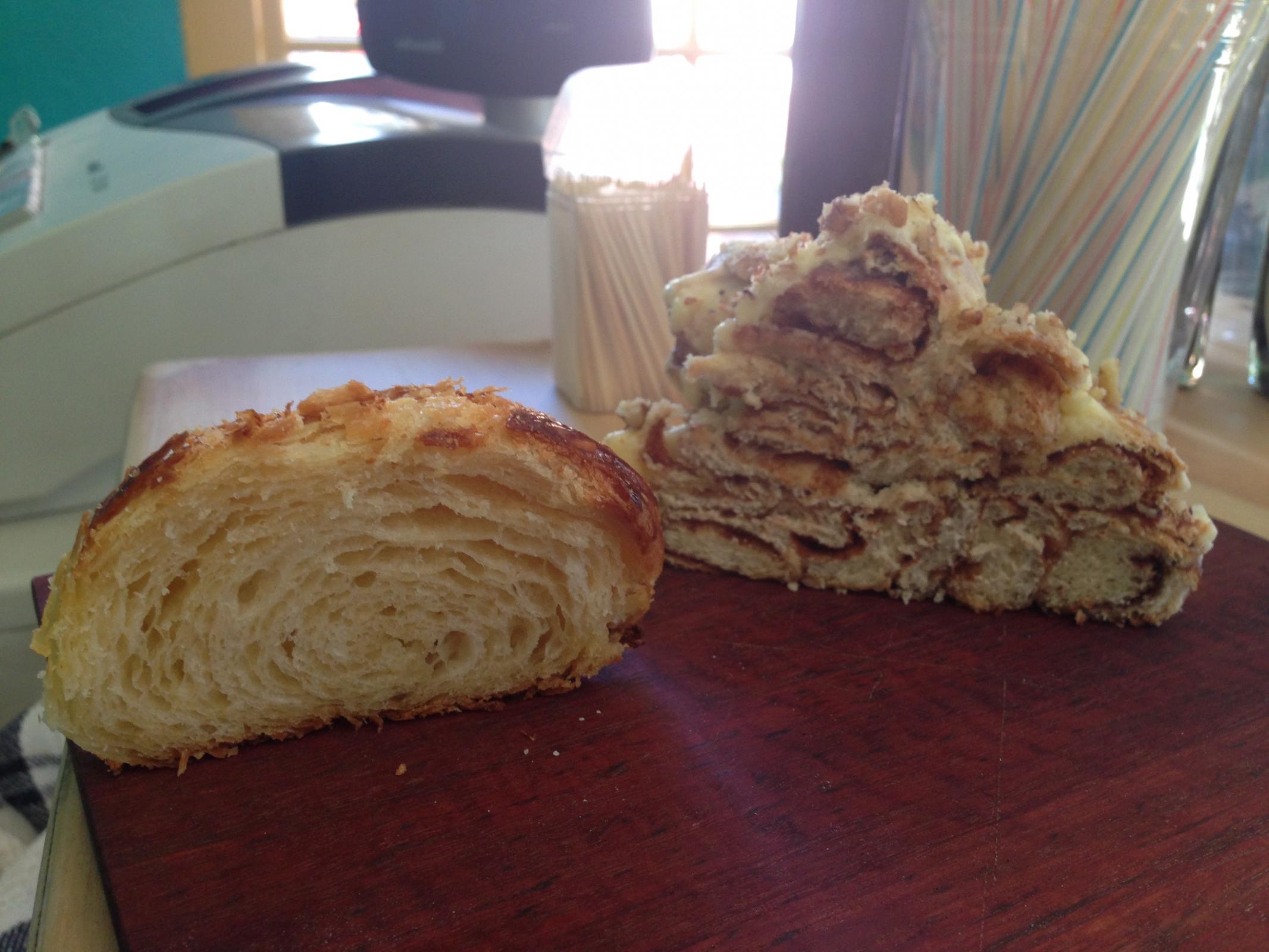November 14, 2016 - 9:26am

Croissant flour choice

Hi All,
I am a baker in South Africa and have recently begun making my own croissants. In the above image i used an all purpose flour with around 11% protein content (it's a blend of 70% stoneground white and 30% Cake flours)
As you can see the crumb is still too dense. Am I using the correct flour? Are there any other South African bakers on this forum who have found a good quality flour to use in this country for croissants? Or is there anyone out there who can give me some advice on the image above and what I may be doing wrong?
Regards
BeardedBaker


However a quick search found this... http://www.ironwhisk.com/2012/08/french-croissants/
AP flour is recommended but technique is really important when it comes to pastry. I know, I've seen The Great British Bake Off.
From getting the laminating just right with chilling and rolling etc the issue could be anything.
I should begin this with a disclaimer: I have had and still have issues with croissants. However, that fact has made me analyze the process of making them intensely and seek out good, somewhat objective info.
1. Flour choice: it's funny you should ask, because I've more or less concluded that this is one of the main culprits behind my own failed croissants. I've been using flour that is at approx. 8.5% protein and stoneground and ecological be damned, this is not a flour that is good for croissants. I also have a very hard time trusting those who tell people to use cake flour, because I have never seen a pic of a professional level croissant made with such flour. I don't think that is a coincidence. The best results I've had when it comes to honeycomb crumb and appearance have come from quality, stoneground flours with a protein content between 10.5-12.5%. That seems to be the sweet spot, so perhaps you should omit the cake flour and go for just your regular flour.
2. Time and analyze your rolling process. Most people tell you to work cold and work swiftly. Do you notice the dough changing consistency and becoming limp and soft during a roll out? I'm in deep water here, but I think the dough should feel basically the same from the moment it leaves the fridge to the end of a roll out. Mark from The Back Home Bakery (mcs on here) has mentioned the following recommended temps, which seem very reasonable: Butter at 12-15 celsius, dough at 5 celius (maybe even lower, I think). By the way, those temps were brought up in regards to the lock-in step.
3. Level of dough development: you don't say anything in your post about this, but perhaps you are either developing the gluten in your dough too much or too little. People that end up with dense bread are often encouraged to knead or otherwise develop the gluten more. I've heard this advice regarding croissants aswell. On the other hand, if your dough is very strong, the problem could be that it resists too much and requires too much force when rolling out.
You could also try prefermenting some of the flour for the dough, like a biga or a poolish for example. Several posters here who seem to be doing very well with croissants use poolish or some other preferment.
I wish you luck. On the bright side, your crumb has the right structure - it just needs help to open up. So I think you're doing a lot of things right here aswell. And a tip from a person who easily goes astray when experimenting: have a stopwatch and an instant-read thermometer with you, and make sure that you measure the few things you actually can measure. I'm sure it will speed up your improvements!
Thanks to my instant-read thermometer I knew for sure that my dough was around 11-13 celsius during the folding steps when I last made croissants. The croissants sucked rather horribly anyway, but at least I know the temp wasn't the problem!
Have you found which flour is best for baking croissants in South Africa?
I was having the same problem. I also use SG flour. I have researched this thing extensively and apparently French bakers use pastry flour. I use 600 gm flour and had a ratio like yours 400 gm bread flour to 200 gm cake flour. to make it more like pastry flour one would have to make the all-purpose mixture, the substitute 180 gm of your "all-purpose" flour with 180 gm of cake flour. I'll do this in tomorrow's croissant bake. I also know that adding 60 cake flour to my 320 gm laminating butter definitely helps to stabilize the butter--I had a problem with it breaking up during the first roll and there is no coming back from that.